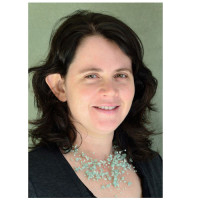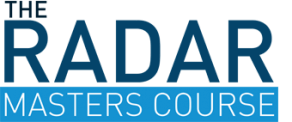Course Information
Dates: 12 to 16 June 2017
Presenter: Prof. Riana Geschke
Course code: EEE5131Z
Venue: Menzies Seminar Room, 6th Floor, Menzies Building (Upper Campus), University of Cape Town
Course Description
This course presents the principles and techniques fundamental to the operation of the signal processing found in a radar system. The course follows the recommended textbook (Principles of Modern Radar, Scitech Publishers) very closely.
This course requires students to have a good background in Mathematics, Physics, and computer programming, probably at an Honours Level (4 years of study). In addition, it is highly recommended that the student should have completed an introductory course in Radar Systems (such as EEE5104F/S), or have had practical exposure to radar systems in the work place, or as part of an undergraduate course in Radar Systems.
Students must be proficient in tools such as Octave, MathCad, Mathematica, Simulink/Matlab, spreadsheets (OpenOffice, Excel), as they are used extensively in the analysis and design examples. Students will use the tools most familiar to themselves.
Course Overview
Specific course topics include:
- How to select filters for various applications according to specifications, frequency ranges, trade-offs between performance and size.
- Filter technologies: planar filters on conventional substrates, multilayer design and packaging techniques (LTCC and LCP) including quasi-lumped element filters, machined waveguide filters and substrate integrated waveguide, and monolithically integrated filters.
- Design methods for narrow-band, wide-band and multi-band filters.
- Manufacturing techniques, design-for-manufacture considerations, tolerance analysis and repeatability.
- Full-wave EM solvers and design tools for filter design and optimization.
Presenter

Prof Riana Geschke is an Associate Professor at the University of Cape Town where she teaches undergradute courses on Engineering Design Methodology, Applied Electromagnetics and Microwave Systems. At postgraduate level, she teaches a course on Technologies and Practical Design for Microwave Filters. Her group’s current research activities span the microwave frequency range from L-band to the 60 GHz communications band. The work is focused on multilayer planar filters, electronic reconfigurability and filters based on transmission lines with special properties. She participated in the FP7 Marie Curie IRSES MultiWaveS project, which focused on Electronically Reconfigurable Multiband Devices and has authored and co-authored a number of journal papers, conference presentations and book chapters in this field.
Riana Geschke’s academic and research career started while pursuing a PhD degree (completed in 2004) at the University of Stellenbosch (SU) in the field of Computational Electromagnetics. During that time, she became a Lecturer in the Department of Communications’ newly established Postgraduate Diploma in Engineering Programme. She was based at SU until the end of 2012, developing an interest in the field of passive microwave component design. In 2013, she thus joined the Radar and Remote Sensing Group at UCT to extend the group’s capabilities in terms of microwave and millimeter wave activities. This naturally complements the group’s current and planned projects and activities. Riana is a regular reviewer the IEEE Wireless and Components Letters and on the Editorial Board of the International Journal of RF and Microwave Computer-Aided Engineering. She is also a Senior Member of the IEEE.
In South Africa, she is involved in activities to stimulate academic and industry collaboration by promoting interaction and collaboration between electrical engineers. In this regard, she is an IEEE volunteer and is currently on the Executive Committee of the South African IEEE Section. From 2009 to 2012, she was the chair of the joint Antennas and Propagation-Microwave Theory and Techniques and Electromagnetic Compatibility (AP-MTT-EMC) IEEE chapter in South Africa, and during that time also chaired the South African AP-MTT-EMC chapter conference in 2011. As a Specialist Editor for the SAIEE Africa Research Journal, she contributes to initiatives for local researchers to publish Electrical and Electronic Engineering research that has both local and international significance.
